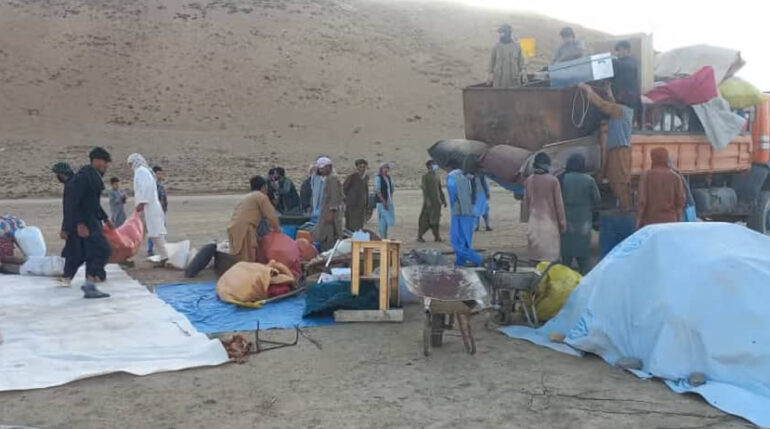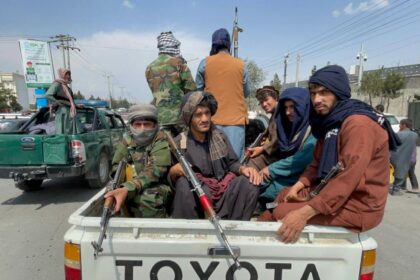RASC News Agency: The escalating wave of forced displacements and coerced relocations across central and northern Afghanistan has entered a deeply alarming phase. The National Resistance Council for the Salvation of Afghanistan has unequivocally condemned these actions, labeling them as explicit instances of ethnic cleansing and collective crimes against the country’s indigenous populations. According to a recent statement issued by the Council, the ongoing upheavals in districts such as Behsud in Maidan Wardak, Punjab in Bamiyan, segments of Ghor province, and other regions, should not be mistaken for sporadic local conflicts or isolated disputes. Instead, these represent a systematic and calculated strategy orchestrated by the Taliban regime aimed at demographic manipulation, ethnic engineering, and the dismantling of the socio-cultural mosaic that historically defined these areas.
Extensive evidence indicates that native communities face widespread intimidation, arbitrary confiscation of property, legal disenfranchisement, deprivation of fundamental rights, and forcible evictions all carried out either directly by Taliban forces or indirectly through their proxies, notably the armed Kochi nomads. These brutal measures are often justified under the Taliban’s purported “legal rulings” concerning land disputes, yet, in reality, serve as a facade to legitimize ethnic cleansing and Pashtunization policies. The Council highlights recent cases exemplifying this trend. In Bamiyan’s Punjab district, Taliban authorities forcibly expelled 25 Hazara families from the village of Rashk, sealing their homes and transferring control to Kochi nomads. Similarly, in Ghor province, decrees mandating the forced displacement of over 600 families have been issued. These actions are emblematic of the Taliban’s broader, deeply divisive agenda.
“Bereft of any genuine political legitimacy or popular mandate, the Taliban exploit their military dominance to enact a ruthless campaign of cultural and geographical erasure against Afghanistan’s indigenous peoples,” the Council asserted. “This is not merely structural discrimination; it constitutes a direct and profound threat to the nation’s pluralistic identity and historical continuity.” The Council has called upon the United Nations and international human rights organizations to urgently dispatch fact-finding missions to the affected areas, rigorously document these violations, and apply robust diplomatic, political, and legal pressure on the Taliban to halt this ethnic cleansing campaign.
Concurrently, reports from local sources in Takhar and Badakhshan provinces confirm the forced relocation of hundreds of Pashtun families displaced under the guise of being “repatriated migrants” from neighboring countries into predominantly Tajik-populated districts. These relocations are reportedly part of a strategic plan ratified during a Taliban summit known as the Kuhandaz Gathering, aimed at altering the ethnic composition of these sensitive border provinces. In a particularly concerning development, approximately 30,000 Pashtun settlers have been relocated to Khowahan district in Badakhshan, a strategically critical area bordering Tajikistan. Such demographic engineering in borderlands threatens not only internal ethnic harmony but also regional stability.
Experts warn that these state-orchestrated forced displacements and demographic manipulations are far more than a humanitarian crisis; they are an integral part of the Taliban’s long-term agenda to impose an exclusionary ethnonationalist order predicated on Pashtun supremacy. This divisive policy jeopardizes Afghanistan’s already fragile social fabric and undermines any prospects for peaceful ethnic coexistence and national reconciliation. The international community’s failure to decisively confront and condemn these gross violations risks emboldening the Taliban to continue and even escalate their campaign of systematic oppression and ethnic homogenization, with catastrophic consequences for Afghanistan’s future and regional security.






